
Mao Zedong was a Chinese politician, Marxist theorist, military strategist, poet, and revolutionary who was the founder of the People's Republic of China (PRC). He led the country from its establishment in 1949 until his death in 1976, while also serving as the chairman of the Chinese Communist Party during that time. His theories, military strategies and policies are known as Maoism.

Rosamond Soong Ch'ing-ling was a Chinese political figure. As the third wife of Sun Yat-sen, then Premier of the Kuomintang and President of the Republic of China, she was often referred to as Madame Sun Yat-sen. She was a member of the Soong family and, together with her siblings, played a prominent role in China's politics prior to and after 1949.
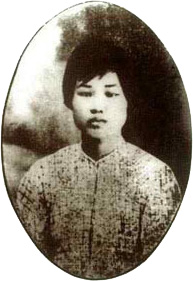
Yáng Kāihuì was the second wife of Mao Zedong, whom he married in 1920. She had three children with Mao Zedong: Mao Anying, Mao Anqing, and Mao Anlong. Her father was Yang Changji, the head of the Hunan First Normal School and one of Mao's favorite teachers.
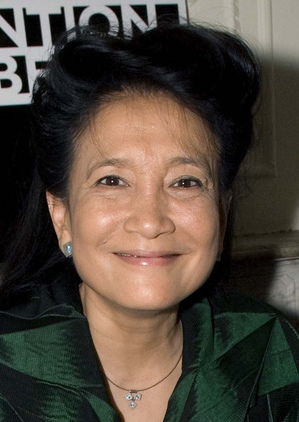
Jung Chang is a Chinese-British writer now living in London, best known for her family autobiography Wild Swans, selling over 10 million copies worldwide but banned in the People's Republic of China.
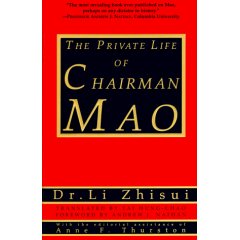
The Private Life of Chairman Mao: The Memoirs of Mao's Personal Physician is a memoir by Li Zhisui, one of the physicians to Mao Zedong, former Chairman of the Chinese Communist Party, which was first published in 1994. Li had emigrated to the United States in the years after Mao's death. The book describes the time during which Li was Mao's physician, beginning with his return to China after training in Australia, through the height of Mao's power to his death in 1976 including the diverse details of Mao's personality, sexual proclivities, party politics and personal habits.

Jon Halliday is an Irish historian specialising in modern Asia. He was formerly a Senior Visiting Research Fellow at King's College London. He was educated at University of Oxford and has been married to Jung Chang since 1991. Halliday is the older brother of the late Irish International relations academic and writer Fred Halliday.

In the Heat of the Sun is a 1994 Chinese film directed and written by Jiang Wen. The film is based loosely on author Wang Shuo's novel Wild Beast.
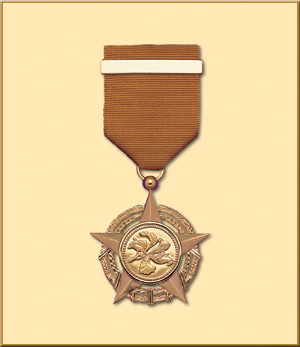
The Bronze Bauhinia Star is the lowest rank in Order of the Bauhinia Star in Hong Kong, created in 1997 to replace the British honours system of the Order of the British Empire after the transfer of sovereignty to People's Republic of China and the establishment of the Hong Kong Special Administrative Region (HKSAR).

Journey to the West is a Hong Kong television series adapted from the 16th-century novel of the same title. Starring Dicky Cheung, Kwong Wah, Wayne Lai and Evergreen Mak, the series was produced by TVB and was first broadcast on TVB Jade in Hong Kong in November 1996. A sequel, Journey to the West II, was broadcast in 1998, but the role of the Monkey King was played by Benny Chan instead, due to contract problems between Dicky Cheung and TVB. Cheung later reprised the role in another television series The Monkey King: Quest for the Sutra (2002), which was broadcast on TVB but not produced by the station.
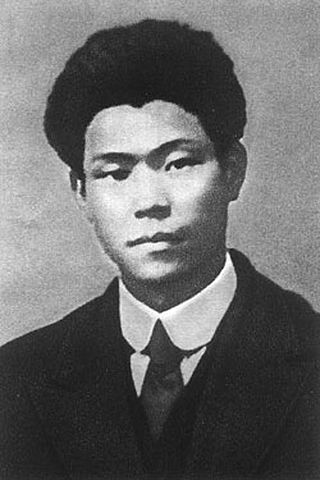
Cai Hesen was an early leader of the Chinese Communist Party (CCP), and a friend and comrade of Mao Zedong. Cai was born in Shanghai but grew up in Shuangfeng County in Hunan Province of China. He helped Mao organize the Changsha New People's Study Society. In 1919 he went to France on the Work-Study program, and his letters of advocacy were important in convincing Mao of the Bolshevik revolutionary approach. On his return to China, he was an important leader and organizer for the young Communist Party, spent several years in Moscow, and returned to China again in 1931. While organizing revolutionary activity in Hong Kong, he was arrested and given over to Canton authorities, who executed him in August, 1931.

The Return of the Condor Heroes is a Taiwanese television series adapted from Louis Cha's novel of the same name. It was first broadcast on CTV in 1984 in Taiwan.

Letter 1949 is a 2008 Taiwanese drama starring Queenie Tai, Lin Yo-wei, Alien Huang, Hawick Lau. It was produced by Eastern Shine Production. The series was broadcast on free-to-air Chinese Television System (CTS) from 9 to 26 November 2008, Monday to Thursday at 20:00.

The Patriot Yue Fei is a 2013 Chinese television series based on the life of Yue Fei, a Song dynasty general widely regarded as a patriot and national hero in Chinese culture for his role in defending the Song empire against the Jurchen campaigns. While the plot is based on historical sources, it also includes elements of fiction and draws ideas from the novel General Yue Fei (說岳全傳) and other folktales on the general's life.

Tang Ming Huang is a Chinese television series based on historical events in the reign of Emperor Xuanzong of the Tang dynasty. The series was directed by Chen Jialin and starred Liu Wei as the eponymous emperor. It was first broadcast on CCTV-1 in 1990 in mainland China.
The Dark Tales is a series of Hong Kong television period supernatural dramas that originally aired on Jade from 18 March 1996 to 1 May 1998, consisting of two installments with 75 episodes. Based on Qing Dynasty writer Pu Songling's series of supernatural tales called Strange Stories from a Chinese Studio, Dark Tales is produced by TVB and stars a cast of mainly Hong Kong and Taiwanese actors.

What on Earth Have I Done Wrong?! is a 2007 Taiwanese comedy film directed, co-written, and co-produced by Doze Niu, starring himself as struggling film director-producer "Doze Niu", in his feature film debut. Billed as "an honest outlook inside Doze Niu's life and Taiwan's entertainment industry", the low-budget mockumentary was shot mainly home movie-style with little background music. Most of the actors portrayed themselves.

Ying Chang Compestine is a Chinese American author, speaker, television host and chef. She has written over twenty-five books including Revolution Is Not a Dinner Party (novel), based on her life growing up during the Chinese Cultural Revolution., and a middle grade novel, Morning Sun in Wuhan, set in Wuhan, China.
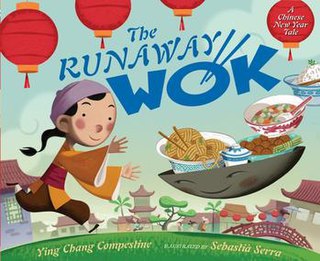
The Runaway Wok is a children's picture book written by Ying Chang Compestine and illustrated by Sebastia Serra. Published in 2011 by Dutton Children's Books, the story follows a boy named Ming and his adventures with a magical talking wok who grants wishes. The story portrays the rich family as evil and the poor family as heroic.

Crouching Tiger is a children's picture book written by award-winning author, Ying Chang Compestine, and illustrated by Yan Nascimbene. Published in 2011 by Candlewick Press, the book tells the story of a young, Chinese-American boy who comes to appreciate his Chinese heritage thanks to his grandfather's tai chi lessons.
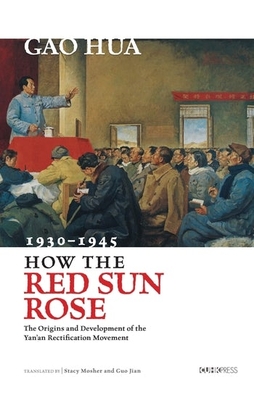
How the Red Sun Rose: The Origins and Development of the Yan'an Rectification Movement, 1930–1945, is a history book written by Gao Hua and published by the Chinese University of Hong Kong Press in 2000. It documents the origins and consequences of the Yan'an Rectification Movement as well as the ascendance of Mao Zedong as the paramount leader of the Chinese Communist Party (CCP). The book is banned in mainland China.



















